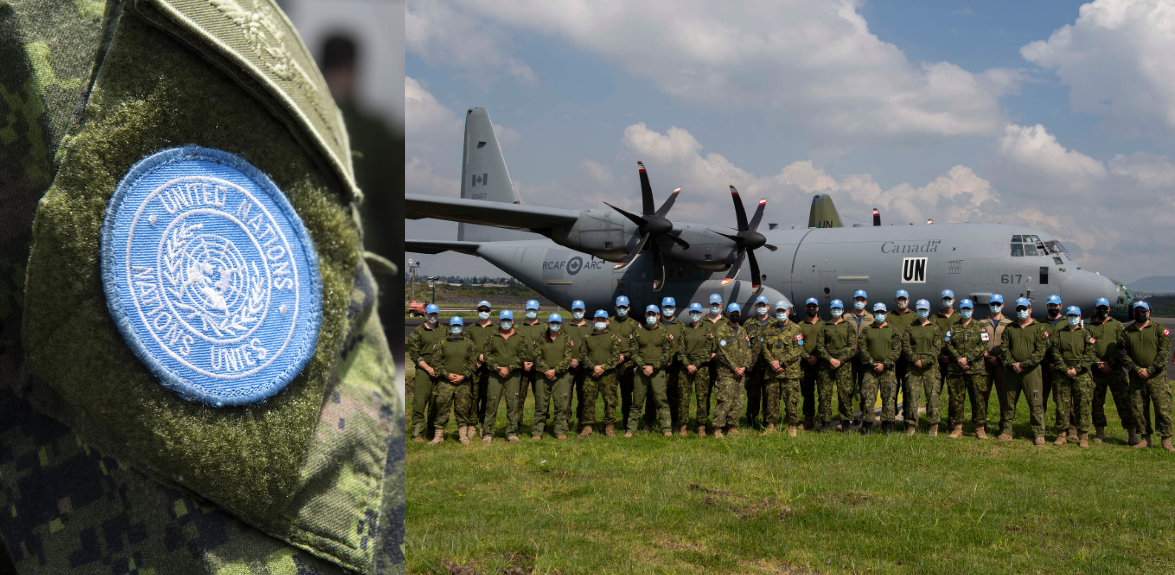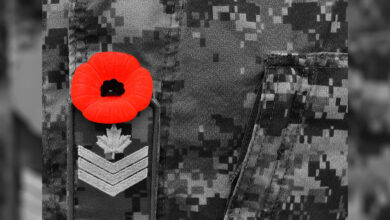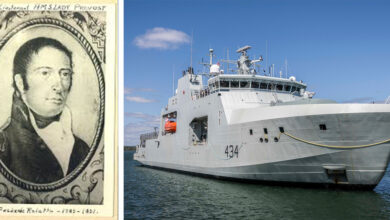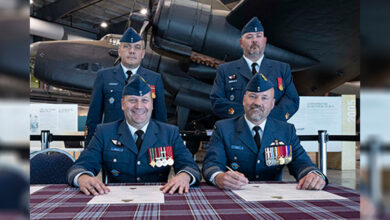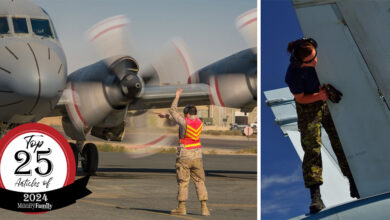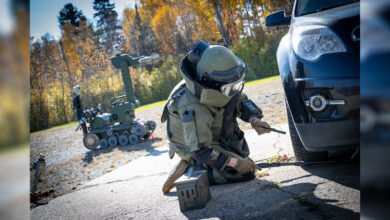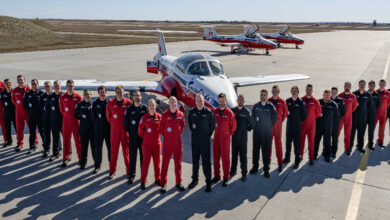Duty Calls
Peacekeepers’ Day Marks 15th Anniversary
Above image: Left, the United Nations patches worn by the members deployed on Operation PRESENCE Uganda, Tactical Air Detachment Goma, 24 November 2021 in Entebbe, Uganda. Right, Members of the Canadian Armed Forces detachment deployed on Operation PRESENCE provide tactical airlift support to the United Nations as part of the MINUSCO in Goma, Democratic Republic of Congo on 15 November 2021. Photos by: Sergeant Vincent Carbonneau, Canadian Forces Combat Camera, Canadian Armed Forces photos.
Since the United Nations first called upon the world to send peacekeepers to volatile regions, the Canadian Armed Forces (CAF) have been there to answer that call.
Since those fateful first few missions in 1948, more than 125,000 CAF members have served on international peacekeeping missions, with over a hundred losing their lives.
To remember the sacrifices of Canada’s peacekeepers, August 9 is designated as National Peacekeepers’ Day.
“Canada’s proud tradition as a peacekeeping nation dates back to the late 1940s, when the UN sent military observers, including eight Canadian officers, to ease tensions in the disputed region of Kashmir. Since then, more than 125,000 members of the CAF, civilians, diplomats, Royal Canadian Mounted Police, and members from Indigenous, provincial, municipal, and regional police organizations have participated in close to a hundred peacekeeping efforts around the world,” said Prime Minister Justin Trudeau in a statement released.
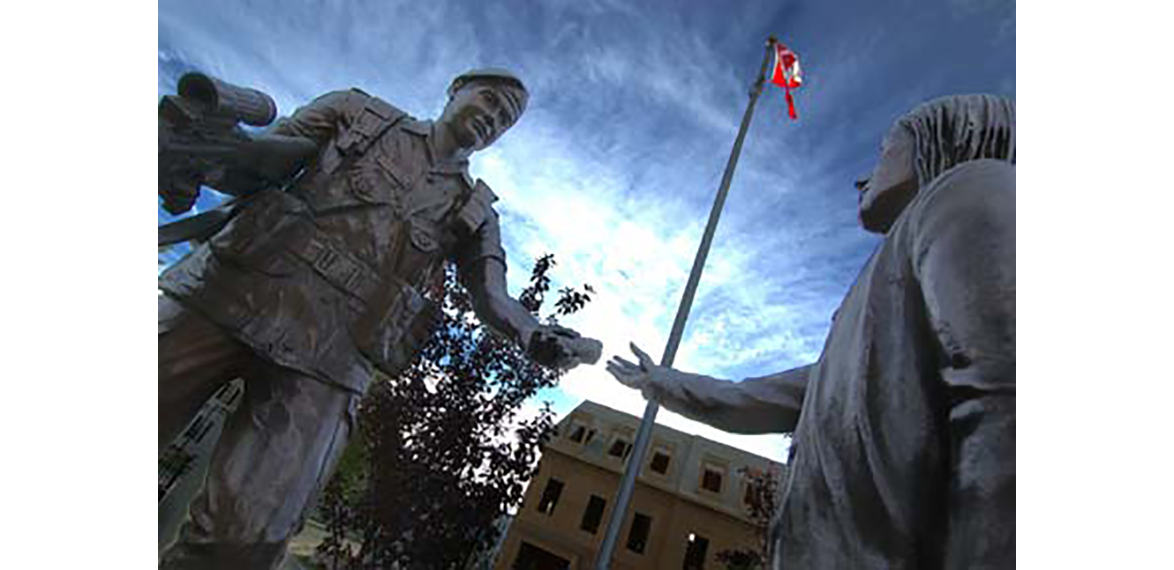
15th Anniversary of Peacekeepers Day
This year marks the 15th anniversary of Canada commemorating National Peacekeepers’ Day.
“Today, as we mark the 15th anniversary of the first National Peacekeepers’ Day, we honour the courage, dedication, and commitment of all Canadians who have served – and continue to serve – in peacekeeping operations around the globe,” said Trudeau.
In 2008, Canada chose Aug. 9 as the day to commemorate the Canadian heroes of peacekeeping missions. The date was chosen to mark the events of Aug. 9, 1974, when nine Canadian peacekeepers, serving in the United Nations Emergency Forces in Egypt and Israel lost their lives when a plane was shot down over Syria.
Trudeau made it a point to recognize the fallen Canadian soldiers who were shot down during this incident.
“National Peacekeepers’ Day is also an opportunity to pay tribute to all those who were wounded or made the ultimate sacrifice in the pursuit of a more peaceful world, including the victims of United Nations (UN) Flight 51. On this day in 1974, UN Flight 51 was shot down by Syrian missiles, killing all nine Canadian Armed Forces (CAF) personnel onboard. This tragedy – the greatest single-day loss of Canadian lives on a peacekeeping mission – serves as a sombre and enduring reminder of the risks peacekeepers take every day.”
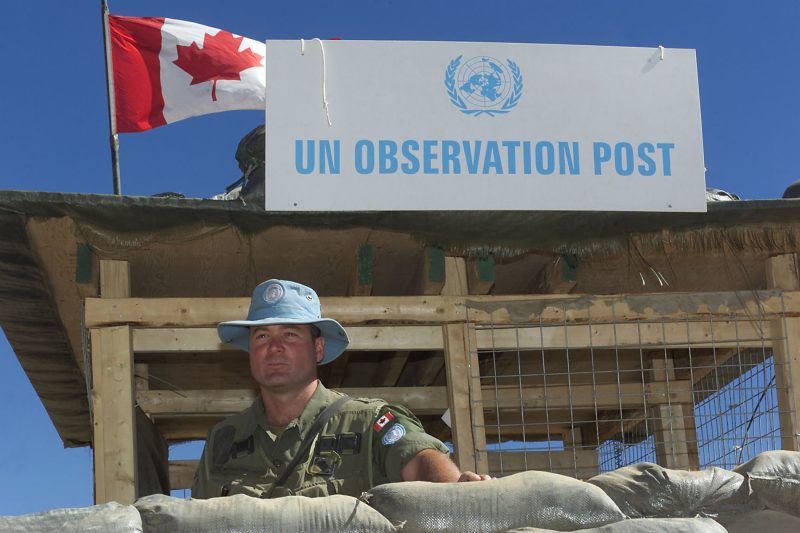
Peacekeeping Over the Years
In the span of 75 years, CAF members have served on peacekeeping missions around the world. These missions have taken place in countries such as:
- Afghanistan
- The Balkans
- Cambodia
- Congo
- Cyprus
- East Timur
- Egypt
- Ethiopia and Eritrea
- Haiti
- Rwanda
- Somalia
- Syria
It is estimated that close to 130 Canadians lost their lives during peacekeeping missions.
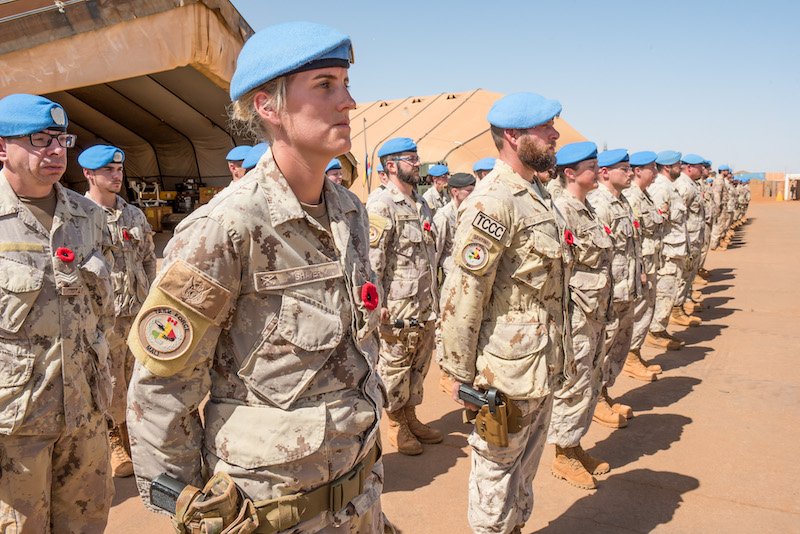
Peacekeeping Today
Canada continues to answer the call for peacekeeping around the world today. Current missions include:
- Operation CROCODILE in the Democratic Republic of Congo.
- Operation SOPRANO in Sudan
- Operation JADE in the Middle East
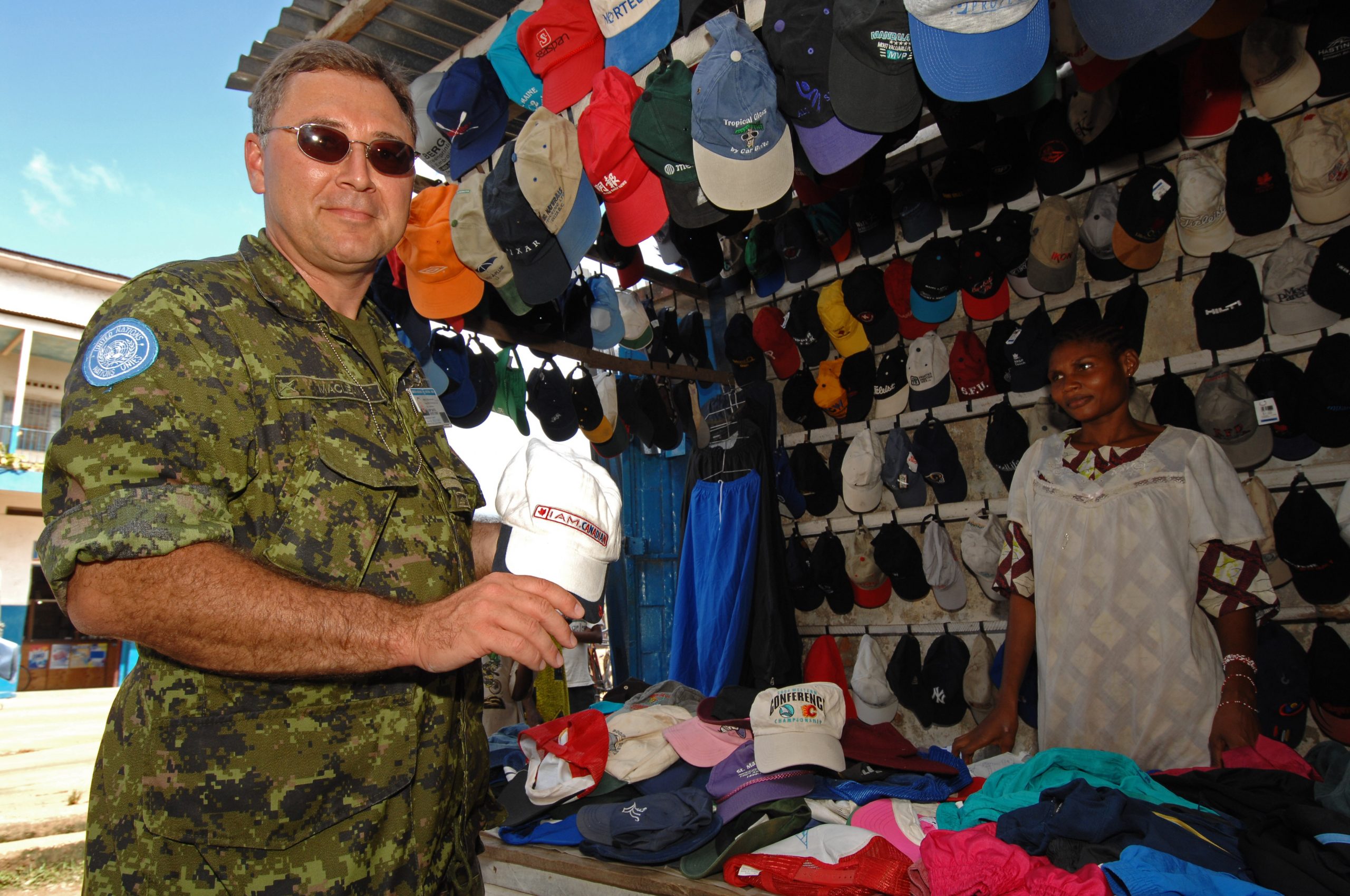
Operation CROCODILE
Operation CROCODILE is Canada’s support to the United Nations Organization Stabilization Mission in the Democratic Republic of the Congo, known as Mission de l’Organisation des Nations Unies pour la stabilisation en République démocratique du Congo (MONUSCO) the mission has nine CAF members deployed here.
According to the Canadian government website, CAF members serve in two locations in the Democratic Republic of Congo (DRC)—the MONUSCO headquarters in Kinshasa and the second headquarters in Goma.
CAF members deployed on the mission are experts in military operations, liaison, and training. They support the MONUSCO mandate in the following ways:
- protecting civilians
- working with the local government and international agencies to help the Congolese government improve justice and security
- monitoring an arms ban
- providing logistic support to assist in national and local elections
As of May 2019, MONUSCO has uniformed personnel from 54 nations. The mission adapts according to the environment in the DRC.
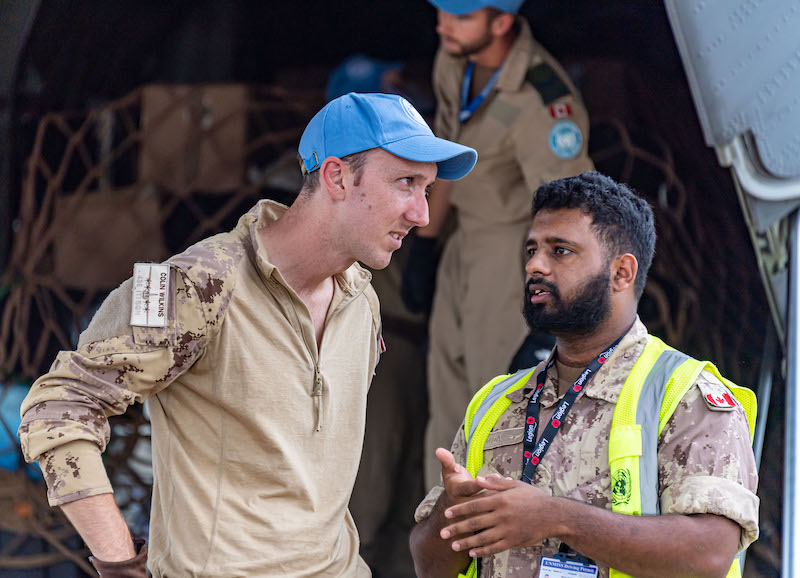
Operation SOPRANO
Operation SOPRANO is currently ongoing in Sudan, with a force of 10 CAF members. CAF members are usually deployed to assist with military planning and logistics.
The personnel serve as staff officers and military liaison officers at Mission in the Republic of South Sudan (UNMISS) Force Headquarters in Juba. They may also serve in other locations throughout the Republic of South Sudan.
The UNMISS mandate includes:
- protect civilians
- monitor and investigate human rights violations
- facilitate humanitarian aid
- support implementing a cease-hostilities agreement
According to the Canadian government website, “UNMISS was established on July 9, 2011. It was formed under UN Security Council Resolution 1996 (2011).”
At any one time, there may be 17,000 military personnel and police from 71 nations serving on UNMISS. The Canadian government website notes that the mission mandate is reviewed annually and is extended as required.
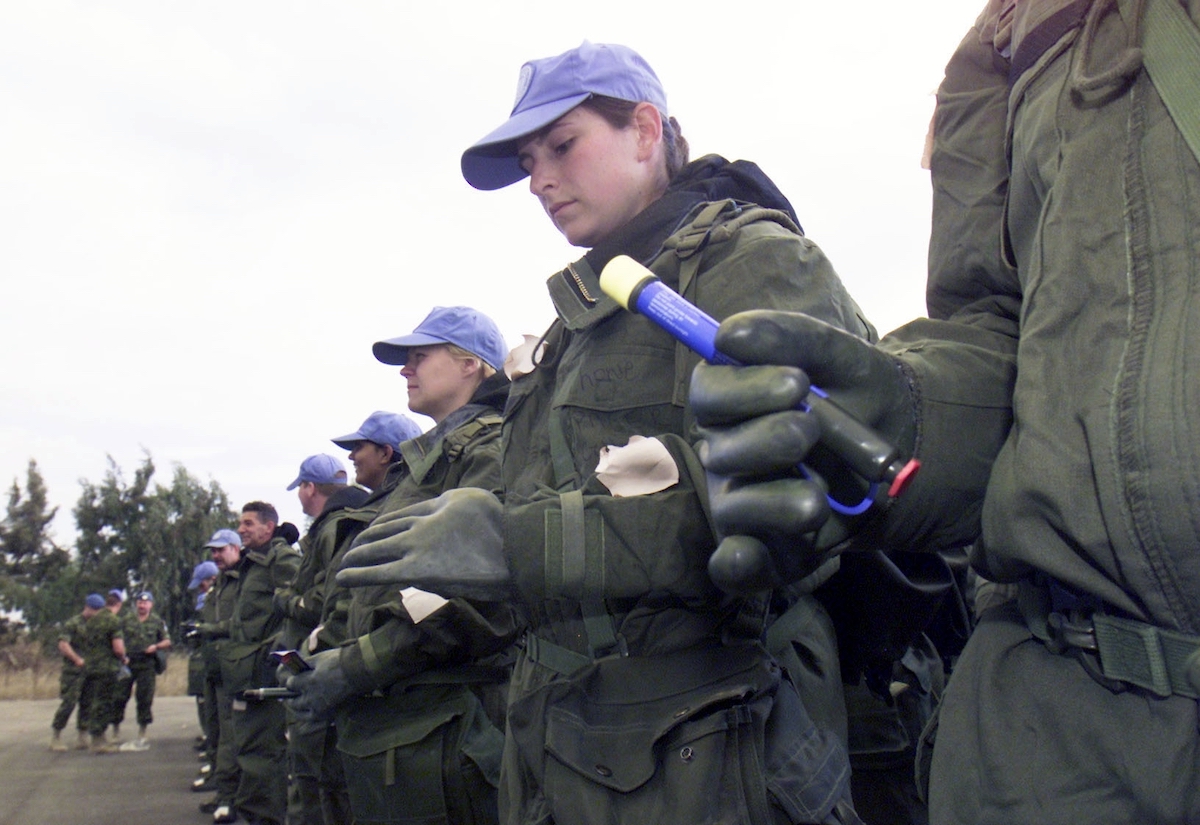
Operation JADE
Operation JADE is a Canadian Armed Forces (CAF) mission in the Middle East. The operation is Canada’s contribution to the United Nations Truce Supervision Organization (UNTSO).
According to the Canadian government website, “Operation JADE is Canada’s longest-running overseas commitment. The first CAF members to serve with UNTSO were sent in 1954.”
The operation is still ongoing and consists of a task force of four officers who serve as United Nations Military Observers (UNMOs)
The UNMOs work with two of UNTSO’s Observer Groups:
- Observer Group Golan supports the United Nations Disengagement Observer Force (UNDOF) on the Golan Heights between Israel and Syria.
- Observer Group Lebanon supports the United Nations Interim Force in Lebanon (UNIFIL).
“The Government of Canada continues to support efforts to make peacekeeping more effective and more inclusive. We continue to rally other countries in support of the Vancouver Principles, which we launched in 2017 to protect children and prevent the recruitment of child soldiers by armed groups and armed forces. And through the Elsie Initiative, we are working to increase the meaningful participation of women in UN peace operations, to help achieve transformational change for peace operations,” said Trudeau.


